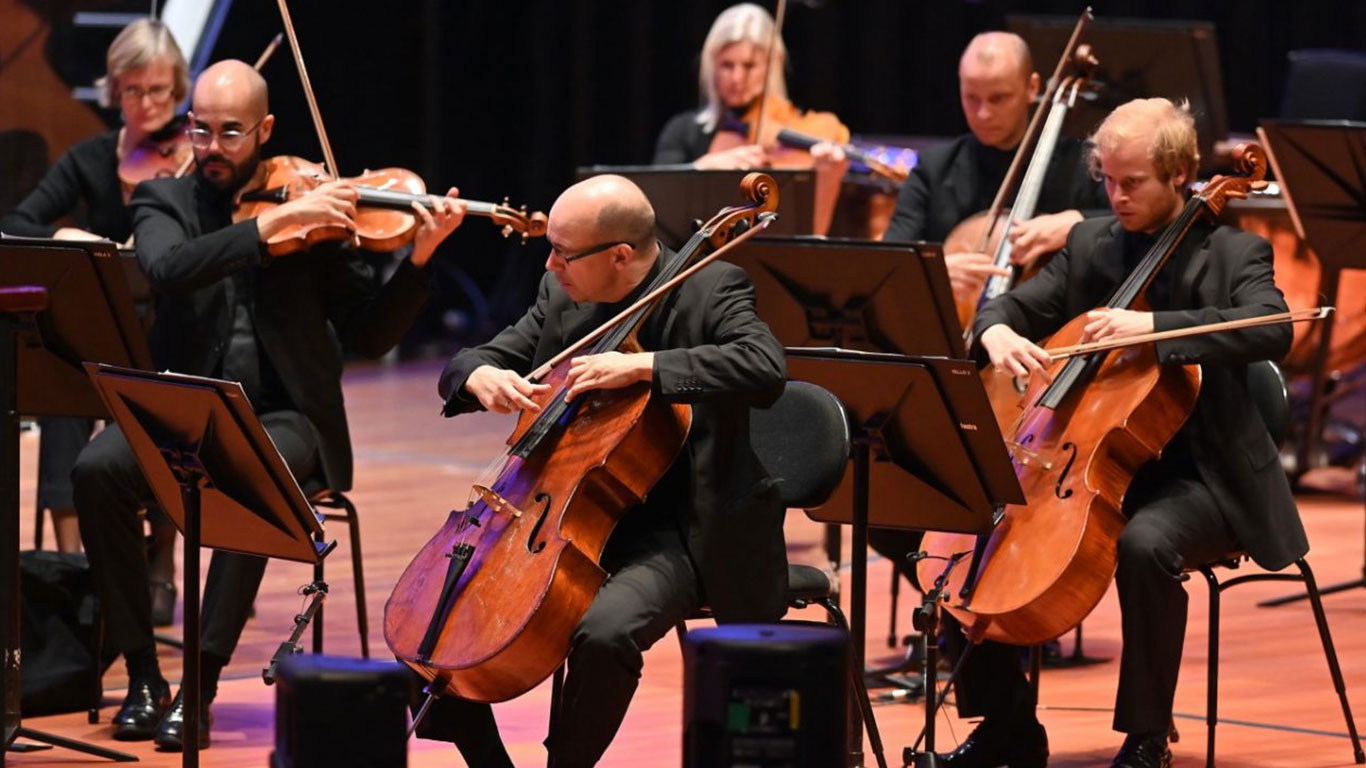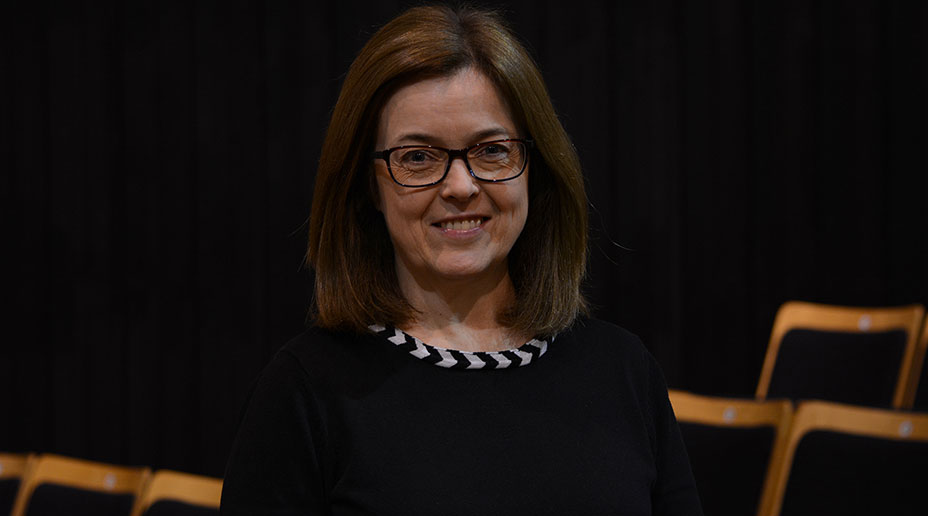We spoke to Heather Duncan about the impact of the lockdown on her role as Head of Concerts and Programming at Bournemouth Symphony Orchestra.

We spoke to Heather Duncan about the impact of the lockdown on her role as Head of Concerts and Programming at Bournemouth Symphony Orchestra.

It was a dramatic moment, the first announcement by the Prime Minister was simultaneous with the BSO’s dress rehearsal of R Strauss’ Elektra. We knew within a couple of hours that the performances wouldn’t be possible and, whilst absolutely necessary for the national effort to bring the virus numbers down, it was a tremendous blow for us. The next morning we were helping cast members find seats on the few remaining flights home and packing up the production which was not to be.
The full lockdown came a week later and at that point, no-one knew quite how long the situation would last. Our offices closed, and like so many, I started working at my dining table, grateful for having left the office with the right computer cables. Aside from the great uncertainty, I pictured this as a time of blue skies and astonishing birdsong – maybe we all just noticed the birds due to the quiet.
Cancelling concerts, conductors, and soloists is normally extremely rare with snow being the only cause of cancellation I’ve known at the BSO. Coming to the realisation that we had to cancel our programme of work for weeks ahead and then months ahead, was a new and not pleasant experience. My role is usually all about making things happen, it was sad to have to phone our friends and collaborators and undo our carefully put together work. What was heartening was the tremendous solidarity within the industry, everyone understood, there was a great sense of working together to get through.
Over the following weeks, my colleagues in the BSO marketing department communicated with every ticket buyer to deal with the cancellations and the financial management of the ticket income. We were bowled over by the support of our audiences, which was a much needed encouragement to all of us. For the BSO as a salaried orchestra, the announcement of the government’s Job Retention Scheme was a lifeline. The salaried orchestral musicians and a large proportion of the BSO administrative team were furloughed.
The 20/21 concert season had been ready for brochure printing at the time of lockdown and we realised that this was unlikely to be able to go ahead as planned. Normally, I would be working on concerts years ahead and it was a real adjustment to be looking just 6 months ahead, and with no fixed points to work with. Would our home venue, the Lighthouse Poole be open, how many musicians would be allowed on stage, how far apart etc? What we did know early on was that we had in-house capacity for streaming concerts, which gave us hope.
The pandemic was further advanced in Europe than in the UK, and so orchestras in other countries started to perform before us. It was fascinating to see those early concerts experimenting with social distancing. The livestreamed concert from the Philharmonie, Berlin on 1 May was particularly inspiring – the Berlin Philharmonic had been due to give their annual May Day concert in Tel Aviv, and instead they performed with 15 musicians in a programme ending with Erwin Stein’s arrangement of Mahler Symphony No.4. Engaging, thought-provoking livestreamed music was possible!
The single biggest concern for us was whether the Lighthouse, Poole – our home venue – would be available. Like concert halls and theatres across the country, the venue was closed and facing serious financial difficulties. Thankfully, the Lighthouse was successful in its application for emergency funding from Arts Council England and could reopen in September.
The concert hall at the Lighthouse has what we call ‘flat floor mode’, where the stalls seating disappears and replaced with a single flat floor. For a while, this seemed the most likely option for having enough space to spread out the orchestra, and then livestream in this setup. As the possibility of having a socially distanced audience became more than a faint hope, we went back to the idea of the orchestra performing on stage with an extension.
There were many unknowns, we’re a symphony orchestra and so we wanted to involve all our musicians. What kind of symphonic repertoire would work with the musicians so far apart, what would it sound like in the audience? The repertoire and artists which we had originally planned for the 20/21 season were my starting point for creating this new series of concerts. We decided that our concerts would be without interval, to avoid the inevitable congestion back-stage and front of house, and in turn it was decided that concerts would be 60-75 minutes long.
By the middle of August, the government guidelines for professional music-making had been issued and we started measuring. Four of the Concerts team and Dougie Scarfe our CEO, spent a day in the concert hall measuring up, scratching our heads, asking questions. We needed to build a huge extension, beyond anything we’d had previously. As the front of the Lighthouse stage is not a straight line, we had to commission several pieces of rostra to complete the jigsaw. Our Concerts Manager researched and designed screens for various positions in the orchestra, which were made locally. A new lighting truss was brought in to cover the larger stage area. A theatre set builder from Dorchester magically painted the extension decking to match the wooden floor of the stage. The orchestra lounge was commandeered as a digital operations centre. This was all done in close collaboration with the Lighthouse staff, who were ever resourceful in dealing with all our requests.
Risk assessments were undertaken for every part of our business, creating countless new ways of working in order to be Covid secure.
After several zoom briefings with the musicians, the orchestra returned to work on 9 September. We worked for several days with David Hill, our Associate Guest Conductor and Michael Seal to get used to working on the new 25m wide stage.
Aside from social distancing, the UK regulations regarding travel corridors and 14 days self-isolation on arrival in the UK from an increasing number of countries, rapidly became difficult. Our Chief Conductor, Kirill Karabits, who was in Switzerland working with Zurich Opera was sadly not able to join us for the season opening. David Hill very kindly stood in and the series got underway with a cheering, socially distanced audience.
When programming the series back in the early summer, we thought hard about what our audience would wish to hear, what we would all be feeling, what we would wish to say. The original plan for the 20/21 season was to open with Mahler Symphony No.3 which was clearly not going to be possible in the circumstances.
Kirill came up with the wonderful idea of opening with a JS Bach chorale, ‘Ein feste Burg ist unser Gott’, which Kirill arranged for the BSO core forces. Starting with solo strings, the arrangement seemed gradually to awaken the orchestra, and was followed without a pause by Charles Ives’ The Unanswered Question - so reflecting both certainty and doubt. As a reminder of our original Mahler plans, the next work was Britten’s arrangement of the slow movement of Symphony No.3, entitled ‘What the wild flowers tell me’.
This year is the 250th anniversary of Beethoven’s birth, and despite Covid, celebrations are planned around the world. The tremendous joy and energy of Beethoven’s Symphony No.7 was the perfect way to conclude - well and truly bringing the orchestra back to life.